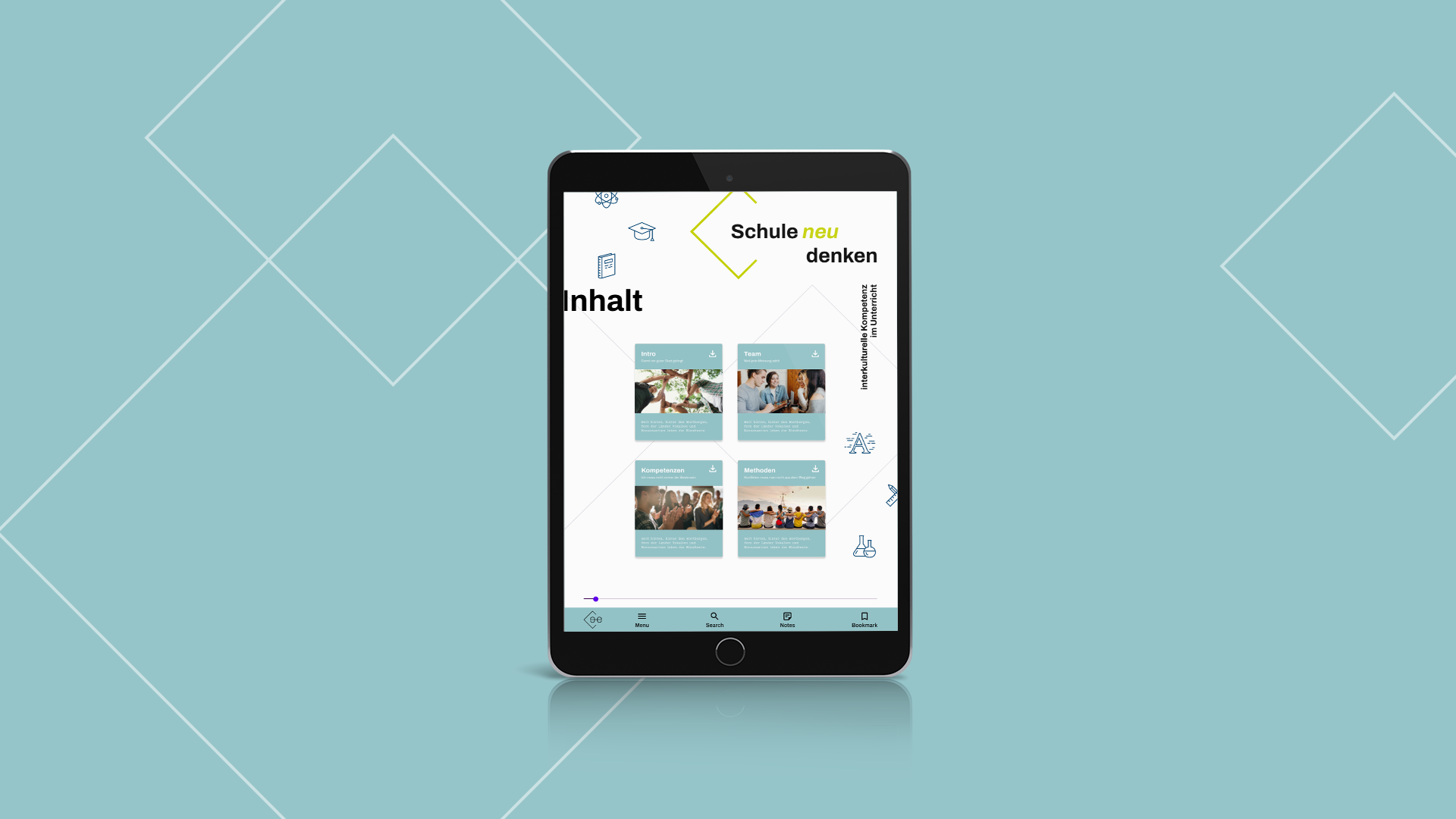
edscape
With edscape, the boundaries between school and educational landscape are dissolved. Learning intercultural competences is made possible at the same time.
The Process
Our world is becoming increasingly complex and with it the demands on a society and professional life. In our education system, everything is designed for measurability and comparability. For a strong and healthy society, we must not only have specialist knowledge, we must be able to experience our world with all our senses. Social interaction is enormously important in this. For this reason, education must be viewed more holistically. In factual knowledge as well as in the formation of soft skills. There is great educational potential in the synthesis of the students' life outside and inside school. In three steps, permeability and intercultural encounter are made possible and intercultural competence is promoted. For this purpose, the concept is divided into development, synchronization and interaction.
Development The first step is development. Through a network analysis, we identify actors and bring them together at an event and an ideas workshop. Students, teachers, and stakeholders develop new projects together and are sensitized to and trained in the subject area of "intercultural competence".
Synchronization In the second step of synchronization, the coordination of the projects takes place. Our aim is to implement them in the curriculum. For example, students have the opportunity to take a Shakespeare theatre project as an alternative to English lessons. Therefore, teachers and stakeholders methodically work out the project structure.
Interaction In the last step, the project takes place. Here the project is worked out. In the interaction, the students work in groups with the actors. The learning units from the lessons are included, and the soft skills are methodically promoted here.
Details
Master
Semester : 1
Subject : "Education as Empowerment"
Team :Lennart Schnur, Franziska Wolf & Maneewan Chokprathum
Skills : User Research, Concept, Strategy, Management, Testing



